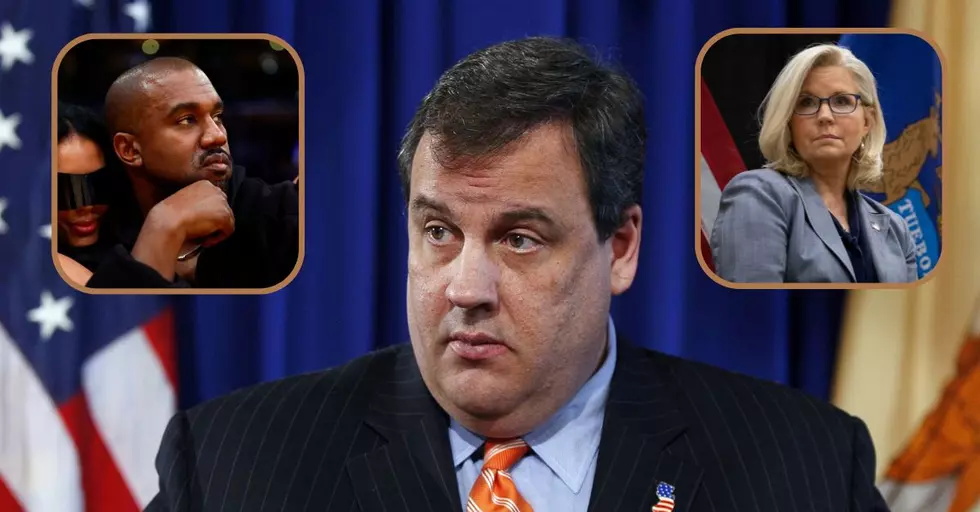
Halfway through Christie school-funding challenge, no plan yet
In his budget speech on the last day of February, Gov. Chris Christie challenged state legislators to work with him to adopt a new school funding formula by early June.
“If we can’t do it in 100 days, shame on us,” said Christie, who then said cryptically he’d act alone “to fix this problem” if a compromise wasn’t reached.
Wednesday is the midway point in that timeline – 50 days down, 50 to go. There have been public hearings by the Legislature and private meetings between its leaders and Christie, but still not yet any tangible results or legislation produced.
Sen. Joseph Pennacchio, R-Morris, says the commitment is there and remains hopeful for a deal.
“I know we can’t promise results because there are some political issues we have to deal with, mainly our Assembly friends. But I think that we can promise the effort,” Pennacchio said.
Assembly Speaker Vincent Prieto, D-Hudson, said work on the issue continues: “Retooling the whole thing in 100 days, it becomes very, very difficult, but I guess you can make adjustments that could be substantial.”
The existing formula was created in 2008, but it was only followed once, then discarded when the recession of 2008 and 2009 ravaged state revenues. It hasn’t been followed by Gov. Chris Christie, who says it’s a failed formula that should be replaced. Following it would add over $1 billion to annual aid.
One feature of the existing formula likely to be altered is what’s called "adjustment aid." It was added to the formula in 2008 to prevent immediate drops in school funding but was supposed to phase out over time. Instead that’s $566 million stuck at a nearly decade-old distribution formula.
“This adjustment aid that’s not part of the formula, that was supposed to be temporary, and the enrollment caps are crushing some of our schools,” said Senate President Stephen Sweeney, D-Gloucester, who said the reductions would again be phased in over five years – for real, this time.
Prieto said he’s willing to look at phasing out adjustment aid for districts that receive more funding than what the existing formula says is adequate.
Prieto wants the formula to expand aid for pre-kindergarten programs, which is now limited to about one-fourth of districts.
“We should also be looking at pre-K. Pre-K should have been afforded to everybody in the state,” said Prieto. “We need to start moving on that, so that’s important.”
Pennacchio said he would like the state to pay for all special-education costs.
“It’s a big cost-driver. And it’s not fair. Somebody comes into a district, one child can actually change the entire school budget because of sometimes the extraordinary costs that are involved with it,” said Pennacchio.
The Senate Republicans’ official proposal says the state should pay for extraordinary special education costs, above a threshold determined by the state Department of Education. They said it is 58 percent funded currently.
Pennacchio said he knows it may not be possible to have the state pay 100 percent of special education costs, both due to budgetary constraints and to ensure districts “have some type of skin in the game.” He said he wants districts known to have quality programs don’t suffer financially for it.
“I want the assurances that if you do good, and these kids are educated, that you’re not penalized by becoming a magnet, where you’re the only school district that parents want to go to because it fulfills their special needs obligations,” he said.
Prieto said it is important to look at how special education is funded but didn’t commit to 100-percent funding. He said, for instance, that it would be fairer to base funding on enrollment, not Census, but that changing it would cost the state around $68 million, as well as redistribute existing aid.
Asked for a progress report on the school-funding efforts, Christie spokesman Brian Murray pointed to the governor’s last full statement on the topic, four weeks ago.
Christie said he’d had talks with legislative leaders but declined to get into details, though he did criticize the New Jersey Education Association for preferring to wait to tackle the issue until next year, after this year’s gubernatorial election.
“We don’t need to spend more money. We need to spend the money we’re spending differently,” Christie said at the time.
Sweeney said legislative leaders last met with Christie on April 6. He concurred that the issue shouldn’t wait.
“Some people keep saying wait for another governor. Why shouldn’t this be debated and discussed right now and try to be fixed right now?”
Prieto said staffers are meeting this week “to figure out potentially what we can do, as long as (it’s done) along the existing formula.”
Pennacchio acknowledged that many of his Republican colleagues, including Christie, want to make more drastic changes than Democratic legislative leaders, who prefer to keep, alter and fund the current formula.
“There’s some within my caucus that want to get rid of the entire formula, blow it up. I don’t know. I have an open mind to working with the Senate president,” Pennacchio said. "Certainly everything’s on the table. Listen, whatever we do has got to be better than what we’re doing right now.”
New Jersey: Decoded cuts through the cruft and gets to what matters in New Jersey news and politics. Follow on Facebook and Twitter.
Michael Symons is State House bureau chief for New Jersey 101.5 and the editor of New Jersey: Decoded. Follow @NJDecoded on Twitter and Facebook. Contact him at michael.symons@townsquaremedia.com
More From WOBM:
More From Beach Radio










